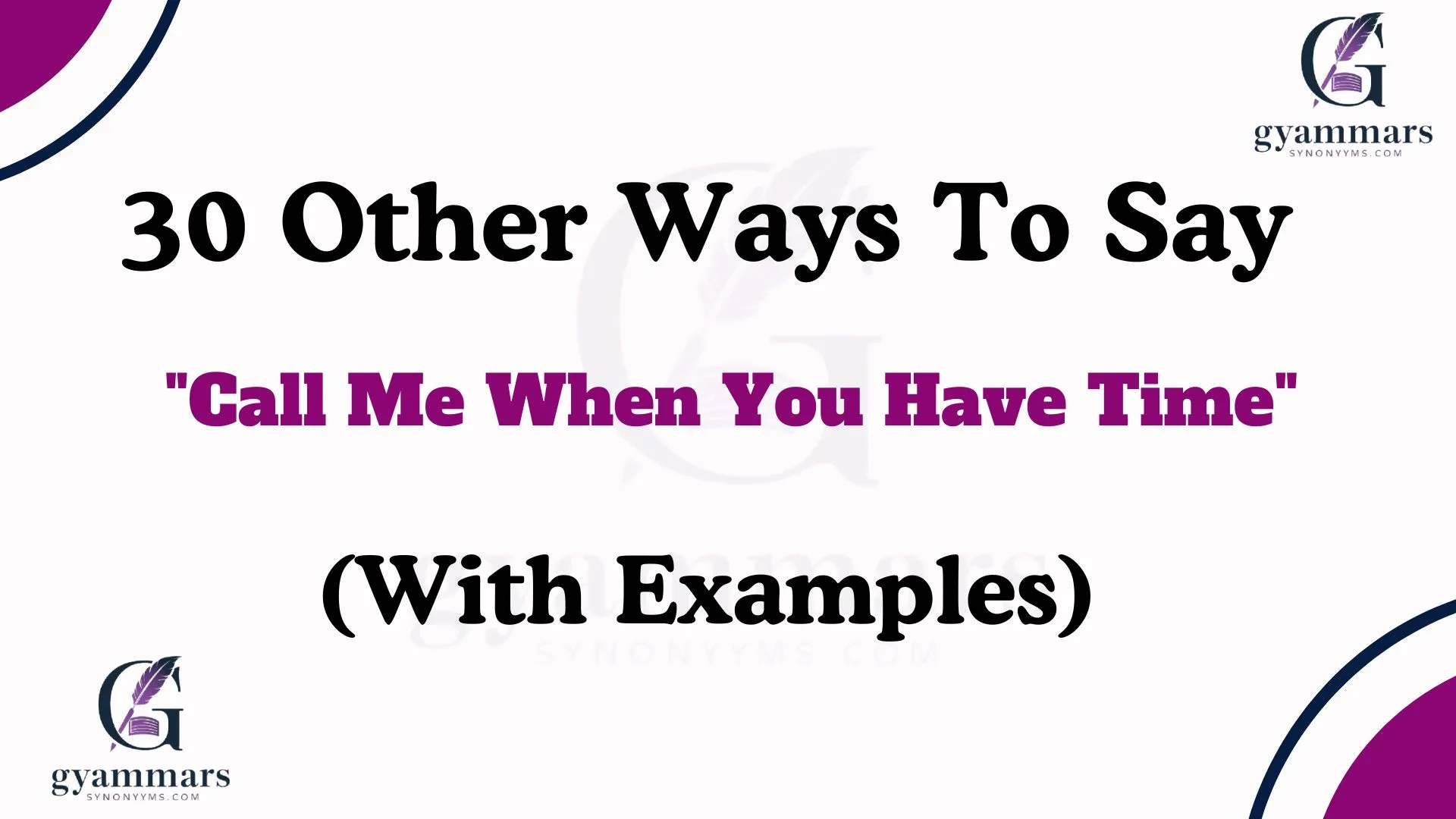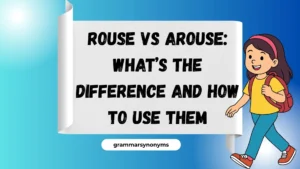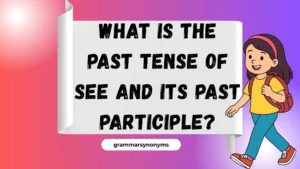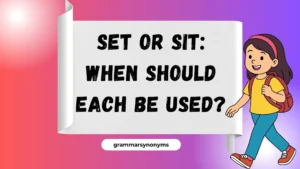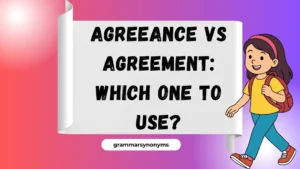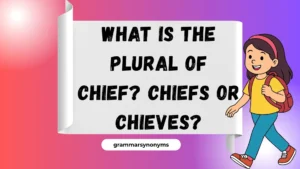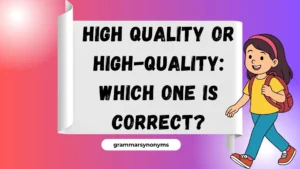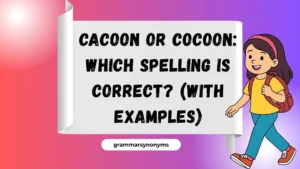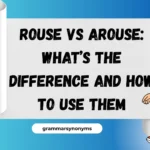Finding the right words to express ourselves can make all the difference in how we communicate care, respect, and understanding. When you want someone to reach out when they have a moment, there are countless ways to phrase it that can feel more thoughtful and personal than simply saying, “Call me when you have time.”
Whether you’re talking to a friend, colleague, or loved one, these alternatives can convey warmth and consideration. In this article, we’ll explore 30 different ways to say this common phrase, along with real-world examples, tone suggestions, and more.
What Does “Call Me When You Have Time” Mean?
“Call me when you have time” is a casual way to tell someone you’d like them to get in touch whenever they have a moment to spare. It’s often used to express the desire for a conversation or a connection but without pressuring the other person into acting immediately. It’s a polite and informal phrase that leaves the decision up to the other person.
Is It Professional/Polite to Say “Call Me When You Have Time”?
While “Call me when you have time” can work in casual settings, it may not always feel the most professional or polite, depending on the context. If you’re speaking with colleagues or clients, it’s important to consider the tone and urgency. In professional settings, there may be other ways to express a similar message that strikes a more formal or respectful note.
Pros and Cons
Pros:
- Casual and non-urgent.
- Allows the other person flexibility.
- Can be seen as considerate and understanding of the other person’s time.
Cons:
- May sound vague or passive.
- Could be interpreted as distant or lack of urgency when you want to communicate something more pressing.
- May not always come across as professional in certain settings.
Synonyms For Call Me When You Have Time
- Reach Out When You Get a Moment
- Let Me Know When You Have a Free Moment
- Ping Me When You’re Not Busy
- Hit Me Up When You’re Free
- Drop Me a Line When You Get a Chance
- Feel Free to Call Me When You’re Available
- Let’s Catch Up When You Have a Free Moment
- Whenever You Have Some Time, Give Me a Call
- Touch Base When You’re Free
- Let’s Talk When You Have Time to Spare
- Whenever You Get a Chance, Give Me a Ring
- Whenever You Can, Let’s Connect
- Feel Free to Reach Out When You’re Available
- Catch Me When You’re Free
- Ping Me When You Get a Break
- Give Me a Call When You Have a Free Window
- Call Me When It’s Convenient for You
- Get in Touch When You Have a Free Minute
- Let Me Know When You Can Spare a Moment
- Let’s Connect When You’ve Got a Free Moment
- Ring Me When You Have Time to Chat
- Message Me When You’re Free
- Drop Me a Message When You Have a Moment
- Let’s Talk When You’re Not Too Busy
- Whenever You Get a Free Second, Give Me a Call
- No Rush, Just Call Me When You Can
- Give Me a Shout When You’re Free
- Check In With Me When You Get a Chance
- Let Me Know When You’re Free to Chat
- Call Me When It Works for You
1. “Reach Out When You Get a Moment”
Definition: This phrase suggests that the person should get in touch when they have time but places less pressure on them.
Explanation: It’s a friendly and easygoing way to express the same sentiment. The phrase “when you get a moment” gives the recipient the flexibility to choose when to reach out.
Scenario Example: “Hey, reach out when you get a moment, I’d love to chat about the project update.”
Best Use: This is best used in a friendly or casual conversation, especially when you don’t want to demand an immediate response.
Tone: Warm, polite, and understanding.
Additional Notes: This phrasing is slightly less formal, making it ideal for friends or close colleagues.
2. “Let Me Know When You Have a Free Moment”
Definition: A softer way of suggesting that the person should contact you when they’re available.
Explanation: It implies that you understand the person’s schedule is busy, and you’re offering them the flexibility to reach out whenever works best.
Scenario Example: “Let me know when you have a free moment, and we can go over the details.”
Best Use: Great for both professional and personal interactions where you want to be considerate of someone’s busy life.
Tone: Respectful, considerate, and understanding.
Additional Notes: This is versatile enough for most situations, including both work and personal conversations.
3. “Ping Me When You’re Not Busy”
Definition: This is a casual way of asking someone to reach out when they’re available.
Explanation: The word “ping” adds a tech-savvy vibe, often used in the digital or workplace context.
Scenario Example: “Ping me when you’re not busy, and we can discuss that new idea.”
Best Use: Suitable for texting or informal communication with peers and colleagues.
Tone: Casual and friendly.
Additional Notes: Avoid using this in formal or professional settings unless you have an established rapport.
4. “Hit Me Up When You’re Free”
Definition: A slang version of asking someone to contact you when they’re available.
Explanation: This is an even more informal and laid-back way to ask for a call or conversation.
Scenario Example: “Hit me up when you’re free, and we’ll catch up!”
Best Use: Ideal for close friends or informal situations, where a relaxed tone is acceptable.
Tone: Very casual, fun, and youthful.
Additional Notes: Best used with people who are familiar with informal language and slang.
5. “Drop Me a Line When You Get a Chance”
Definition: Another casual and polite way to ask someone to reach out when it’s convenient for them.
Explanation: “Drop me a line” is a bit of old-school slang, but it still works well in informal situations. It suggests that the person should contact you at their leisure.
Scenario Example: “Drop me a line when you get a chance, I’d love to discuss this more.”
Best Use: Works well in both personal and professional contexts, especially when you don’t want to rush the other person.
Tone: Casual, thoughtful, and friendly.
Additional Notes: While a bit outdated, it still conveys politeness and flexibility.
6. “Feel Free to Call Me When You’re Available”
Definition: A polite invitation for someone to reach out at their convenience.
Explanation: This phrase suggests that you’re not in a hurry but would like to connect when the person has time.
Scenario Example: “Feel free to call me when you’re available, we can go over everything.”
Best Use: Excellent for professional settings or when you want to sound courteous and respectful.
Tone: Polite, formal, and inviting.
Additional Notes: This phrase is ideal for professional contexts where you want to keep things formal.
7. “Let’s Catch Up When You Have a Free Moment”
Definition: A suggestion for a more engaging conversation when the other person is available.
Explanation: This phrase implies that you’re not just looking for a quick call but a longer, more meaningful chat.
Scenario Example: “Let’s catch up when you have a free moment, I have so much to share!”
Best Use: Ideal for friends or colleagues you want to have a more engaging conversation with.
Tone: Friendly, warm, and conversational.
Additional Notes: This could work well in both casual and semi-professional settings.
8. “Whenever You Have Some Time, Give Me a Call”
Definition: A polite way to ask someone to get in touch when they have a free moment.
Explanation: This version emphasizes the person’s availability and lets them choose when to reach out.
Scenario Example: “Whenever you have some time, give me a call about the new project proposal.”
Best Use: Professional settings where you want to show respect for the person’s schedule.
Tone: Formal, polite, and respectful.
Additional Notes: A suitable option when you want to maintain a professional tone.
9. “Touch Base When You’re Free”
Definition: A professional and friendly way to say “let’s connect.”
Explanation: “Touch base” implies a quick conversation, often used in professional environments.
Scenario Example: “Touch base when you’re free to discuss the marketing strategy.”
Best Use: Works well in workplace or professional settings when you need a short discussion.
Tone: Professional, polite, and efficient.
Additional Notes: Best used in professional and workplace environments.
10. “Let’s Talk When You Have Time to Spare”
Definition: A phrase that emphasizes the person’s ability to connect with you when they’re available.
Explanation: This phrasing shows you respect their schedule and aren’t rushing them.
Scenario Example: “Let’s talk when you have time to spare, I’d love to hear your thoughts on the design.”
Best Use: Ideal for both personal and professional conversations where you want to give the other person space.
Tone: Polite, understanding, and respectful.
Additional Notes: Works well when addressing people in busy roles or with hectic schedules.
11. “Whenever You Get a Chance, Give Me a Ring”
Definition: A more informal way to request someone to call you when they have time.
Explanation: The phrase “give me a ring” is a casual, friendly request for a phone call, often used among close friends or colleagues.
Scenario Example: “Whenever you get a chance, give me a ring and let’s talk about the new ideas!”
Best Use: Great for informal situations, such as with friends or casual acquaintances.
Tone: Casual, friendly, and easygoing.
Additional Notes: This is a very informal expression and may not be suitable for professional contexts.
Read More: 30 Other Ways to Say “Please Feel Free” (With Examples)
12. “Whenever You Can, Let’s Connect”
Definition: A flexible and polite way to suggest a conversation when the person has time.
Explanation: “Let’s connect” implies a desire for communication, but it gives the other person the freedom to choose when they’re available.
Scenario Example: “Whenever you can, let’s connect to discuss the presentation details.”
Best Use: Ideal for both professional and informal contexts where you respect the other person’s time.
Tone: Friendly, professional, and considerate.
Additional Notes: Works well in emails or work-related messages.
13. “Feel Free to Reach Out When You’re Available”
Definition: A polite way to give the other person the space to reach out when convenient.
Explanation: This phrase puts no pressure on the other person, showing that you’re willing to wait until they’re available.
Scenario Example: “Feel free to reach out when you’re available; I’d love to hear your thoughts.”
Best Use: Best used in formal or semi-formal situations where respect for the other person’s time is essential.
Tone: Professional, respectful, and considerate.
Additional Notes: A slightly more formal version that could be used in workplace emails.
14. “Catch Me When You’re Free”
Definition: A more informal and easygoing version of requesting someone to reach out.
Explanation: This phrase implies that the conversation is not urgent, and you’re open to a chat whenever the other person has time.
Scenario Example: “Catch me when you’re free, and we can discuss the upcoming event.”
Best Use: Perfect for friends or close colleagues who don’t have a rigid schedule.
Tone: Casual, laid-back, and friendly.
Additional Notes: Best used in informal settings, avoid using it for professional matters.
15. “Ping Me When You Get a Break”
Definition: Suggesting the person to get in touch during a break in their day.
Explanation: This phrase assumes the other person has some downtime and is available for a quick conversation.
Scenario Example: “Ping me when you get a break, I need to go over the schedule.”
Best Use: Great for colleagues or friends who work in environments where breaks are a part of their schedule.
Tone: Casual, understanding, and friendly.
Additional Notes: Ideal when you know the person’s schedule includes breaks, such as in an office environment.
16. “Give Me a Call When You Have a Free Window”
Definition: A polite way to ask someone to reach out when they have a free time slot.
Explanation: The phrase “free window” is a slightly formal but effective way to suggest that someone should contact you during their available moments.
Scenario Example: “Give me a call when you have a free window, and we can discuss the proposal.”
Best Use: Works well in a professional environment where the other person has a packed schedule.
Tone: Professional, polite, and respectful.
Additional Notes: This can be used in business settings, but avoid it in overly casual conversations.
17. “Call Me When It’s Convenient for You”
Definition: A polite and non-urgent way to tell someone they can contact you when it suits them.
Explanation: It emphasizes that there’s no rush and the other person should only reach out when it’s comfortable for them.
Scenario Example: “Call me when it’s convenient for you; we can discuss the next steps in the project.”
Best Use: Perfect for professional or semi-formal situations where you want to be respectful of the other person’s time.
Tone: Polite, respectful, and professional.
Additional Notes: This is ideal for work-related matters or situations where the person is in a busy or high-pressure environment.
18. “Get in Touch When You Have a Free Minute”
Definition: A casual way to suggest a quick call or conversation when the other person is available.
Explanation: This phrase is less formal and suggests that you don’t need a long conversation, just a brief moment.
Scenario Example: “Get in touch when you have a free minute, and we can go over the report.”
Best Use: Ideal for informal conversations where you don’t want to take up too much of the other person’s time.
Tone: Casual, friendly, and low-pressure.
Additional Notes: This is a great option when you need something quick but still want to respect the other person’s time.
19. “Let Me Know When You Can Spare a Moment”
Definition: A polite way to ask someone to call you when they have some time to spare.
Explanation: The phrase “spare a moment” implies a small amount of time, suggesting that you’re not requesting a lengthy conversation.
Scenario Example: “Let me know when you can spare a moment to discuss the new assignment.”
Best Use: Ideal for both formal and informal situations where you want to respect the other person’s time without being too specific.
Tone: Polite, professional, and respectful.
Additional Notes: Suitable for both professional emails and casual conversations.
20. “Let’s Connect When You’ve Got a Free Moment”
Definition: A casual yet considerate way to ask someone to reach out when they are available.
Explanation: It is a gentle request that gives the other person the freedom to choose when to reach out.
Scenario Example: “Let’s connect when you’ve got a free moment, and we can brainstorm ideas.”
Best Use: Great for semi-formal to casual situations where you want a conversation without pressing for immediate action.
Tone: Friendly, polite, and flexible.
Additional Notes: Works well in both professional and personal settings.
21. “Ring Me When You Have Time to Chat”
Definition: A light, friendly way to ask someone to call when it’s convenient for them.
Explanation: This phrase is ideal when you’re looking for a more conversational or informal connection.
Scenario Example: “Ring me when you have time to chat; I’ve got some exciting updates to share.”
Best Use: Suitable for informal situations, especially with friends or close colleagues.
Tone: Casual, warm, and inviting.
Additional Notes: This is a great option for a lighthearted or friendly tone.
22. “Message Me When You’re Free”
Definition: A casual and flexible way to suggest someone reach out when they have time.
Explanation: This phrase implies that the person can choose between texting or calling, making it more adaptable.
Scenario Example: “Message me when you’re free, and we can go over the final details.”
Best Use: Great for informal settings where you don’t necessarily require a phone call.
Tone: Casual, friendly, and open-ended.
Additional Notes: Works well when you’re open to either a text or a call.
23. “Drop Me a Message When You Have a Moment”
Definition: A polite and considerate way to ask someone to contact you.
Explanation: This phrase gives the person the option to choose how they want to communicate, making it less demanding.
Scenario Example: “Drop me a message when you have a moment, and we’ll go over the next steps.”
Best Use: Suitable for professional and personal situations where flexibility is important.
Tone: Polite, warm, and understanding.
Additional Notes: Works well in business emails or friendly conversations.
24. “Let’s Talk When You’re Not Too Busy”
Definition: A caring way to acknowledge the other person’s busy schedule while suggesting a conversation.
Explanation: This phrase reassures the person that you understand their time is valuable and that there’s no rush.
Scenario Example: “Let’s talk when you’re not too busy. I’d love to hear your thoughts on this!”
Best Use: Ideal for situations where you want to be considerate of someone’s workload.
Tone: Thoughtful, kind, and patient.
Additional Notes: Great for checking in with friends, family, or even coworkers.
25. “Whenever You Get a Free Second, Give Me a Call”
Definition: A way to ask for a quick check-in when someone has even a brief moment.
Explanation: This suggests that even a small window of time is enough for a quick chat.
Scenario Example: “Whenever you get a free second, give me a call. I just need to confirm something with you.”
Best Use: Best when you need a brief but important conversation.
Tone: Light, respectful, and understanding.
Additional Notes: It may not be ideal for professional settings unless you have an informal rapport with the person.
26. “No Rush, Just Call Me When You Can”
Definition: A laid-back way to let someone know they can reach out at their convenience.
Explanation: Adding “no rush” removes any sense of urgency and makes the message feel more relaxed.
Scenario Example: “No rush, just call me when you can. I’d love to catch up.”
Best Use: Perfect for friends and family when there’s no urgency.
Tone: Relaxed, friendly, and warm.
Additional Notes: Best avoided in professional emails unless used in a very casual work relationship.
27. “Give Me a Shout When You’re Free”
Definition: A fun and informal way to suggest someone call you when they have time.
Explanation: The phrase “give me a shout” is often used as slang for getting in touch.
Scenario Example: “Give me a shout when you’re free—we haven’t talked in ages!”
Best Use: Ideal for casual and friendly conversations.
Tone: Playful, relaxed, and informal.
Additional Notes: Avoid in professional emails or formal settings.
28. “Check In With Me When You Get a Chance”
Definition: A polite request for someone to reach out when it suits them.
Explanation: This phrase implies that the person should follow up when they have time.
Scenario Example: “Check in with me when you get a chance, and we’ll finalize the details.”
Best Use: Useful in both personal and workplace conversations.
Tone: Professional, polite, and friendly.
Additional Notes: Great for when you need an update but don’t want to sound pushy.
29. “Let Me Know When You’re Free to Chat”
Definition: A direct and polite way to suggest a conversation at the other person’s convenience.
Explanation: This phrase ensures the person knows you’d like to talk but gives them flexibility.
Scenario Example: “Let me know when you’re free to chat, and we’ll go over the final plan.”
Best Use: Works well in professional and personal settings where respect for time is key.
Tone: Professional, polite, and considerate.
Additional Notes: Ideal for work-related discussions.
30. “Call Me When It Works for You”
Definition: A kind and flexible way to let someone reach out when it best fits their schedule.
Explanation: This phrase removes any pressure and lets the person decide when to call.
Scenario Example: “Call me when it works for you—I know you’re busy!”
Best Use: Great for both professional and personal interactions where you want to show patience.
Tone: Warm, understanding, and respectful.
Additional Notes: Excellent for maintaining good communication without rushing the other person.
Conclusion
In this article, we’ve explored 30 different ways to say “Call me when you have time,” offering various tones, from casual and friendly to professional and polite. Whether you need to ask a coworker to check in or want to let a friend know you’re available for a chat, these alternatives give you plenty of options to communicate with warmth and care.
The key is to choose a phrase that fits the situation and relationship, ensuring that your message is received in the best way possible. By using thoughtful language, you can make your conversations more engaging and considerate.
Frequently Asked Questions (FAQs)
1. Why should I use alternatives to “Call me when you have time”?
Using alternatives can make your message sound more personal, professional, or considerate, depending on the context. It helps you express warmth, care, and thoughtfulness in communication.
2. What is the most professional way to say “Call me when you have time”?
For professional settings, consider phrases like:
- “Let me know when you have a free moment to discuss this.”
- “Feel free to reach out when it’s convenient for you.”
- “Whenever your schedule allows, let’s connect.”
These alternatives sound respectful and non-intrusive in business communication.
3. What is a polite way to ask someone to call you?
A polite way to request a call includes:
- “Give me a call whenever you have a moment.”
- “I’d love to hear from you when you get a chance.”
- “Please call me when you find some time.”
These options show respect for the other person’s time while maintaining a warm tone.
4. What is a casual way to say “Call me when you have time”?
If you’re speaking to friends or family, you can use:
- “Hit me up when you’re free!”
- “Catch me when you have a sec.”
- “Ping me when you’re not busy.”
These are friendly, informal, and lighthearted ways to ask for a call.
5. Is “Call me when you have time” too vague?
Yes, it can be vague, especially in urgent or professional situations. If you need a timely response, you might say:
- “Please call me today when you have a moment.”
- “I’d appreciate it if you could call me this afternoon.”
- “Let’s talk before the end of the day when you’re available.”

“Emma Rose at Grammar Synonyms is your go-to expert for everything related to language and expression. Whether you’re refining your grammar, searching for the perfect synonym, or looking for creative ways to improve your writing, Emma Rose provides the tools and inspiration you need. With a wide range of resources designed to elevate your communication, Grammar Synonyms helps you find just the right words to make every sentence shine.
